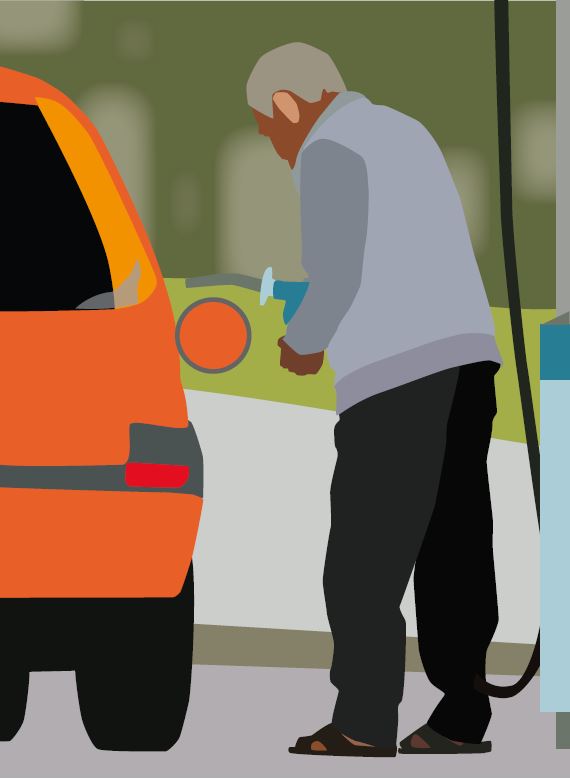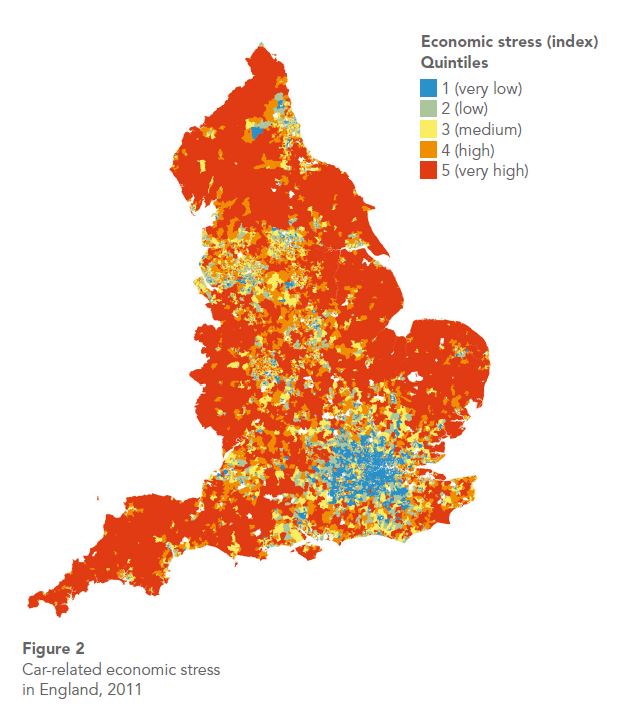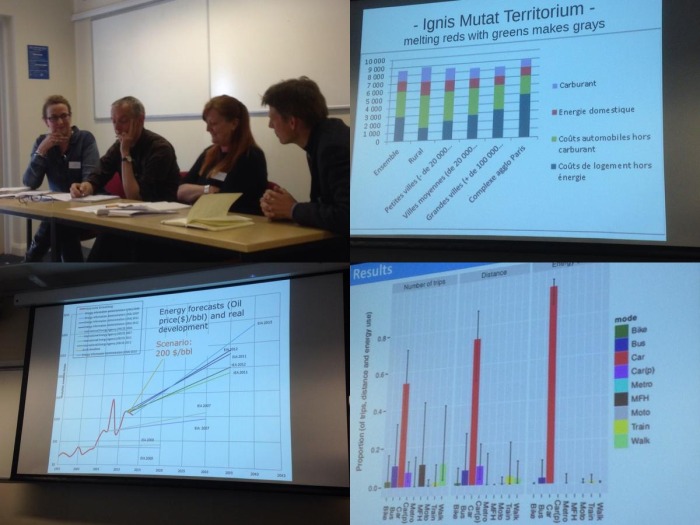
As part of this research project, we are guest-editing a special issue of Tranport Policy on “Household transport costs, economic stress and vulnerability, at the interface between mobility, domestic energy and residential location”. The first two articles were published online in late 2016.
January 2017 has seen the publication online of four further articles on the themes of forced car ownership, automobile debt, spatial patterns in the costs of car use, and the consequences of the economic crisis on travel behaviour. They cover contexts as different as the UK, Greece, Canada and Glasgow (Scotland).
Alan Walks – ‘Driving the poor into debt? Automobile loans transport disadvantage, and automobile dependence‘
Alan Walks of the University of Toronto presents a study on the link between automobile dependence and household indebtedness in the main Canadian metropolitan areas. He finds evidence that low-income households living in car dependent areas have higher levels of debt for automobile loans, although the determinants of overall debt levels are complex and hard to disentangle.
Tim Chatterton, Jillian Anable, Sally Cairns & Eddie Wilson – ‘Financial implications of car ownership and use: a distributional analysis based on observed spatial variance considering income and domestic energy costs‘
Tim Chatterton (University of the West of England) and colleagues demonstrate how vehicle inspection data (publicly available in the UK) can be used to map spatial variation in household motoring expenditure at a very disaggregated level. They find higher expenditure levels in less urbanised areas, as well as a strong relationship between expenditure on road fuel and domestic energy (at the area level).
Apostolos Papagiannakis, Ioannis Baraklianos & Alexia Spyridonidou – ‘Urban travel behaviour and household income in times of economic crisis: Challenges and perspectives for sustainable mobility’
Apostolos Papagiannakis (Aristotle University of Thessaloniki) and colleagues present findings from a survey of urban travel behaviour in crisis-striken Greece. They find that economic recession has resulted in large decreases in car use, as a result of both modal shift and outright trip avoidance. Notably, they find that low-income households had to switch to cheaper travel modes in order to maintain or even decrease their travel expenditure.
Angela Curl, Julie Clark & Ade Kearns – ‘Household car adoption and financial distress in deprived urban communities: A case of forced car ownership?’
The study of Angela Curl and colleagues (University of Glasgow) takes a look at ‘forced car owners’ – households owning cars despite financial difficulties – in deprived areas of Glasgow (Scotland). They find that, despite the urban location and the impact of the economic crisis, ‘forced car ownership’ rates increased rapidly between 2006 and 2011. This suggests that, even in urban areas, many low-income households find it hard to do without cars, and have to cope with the resulting economic stress.



